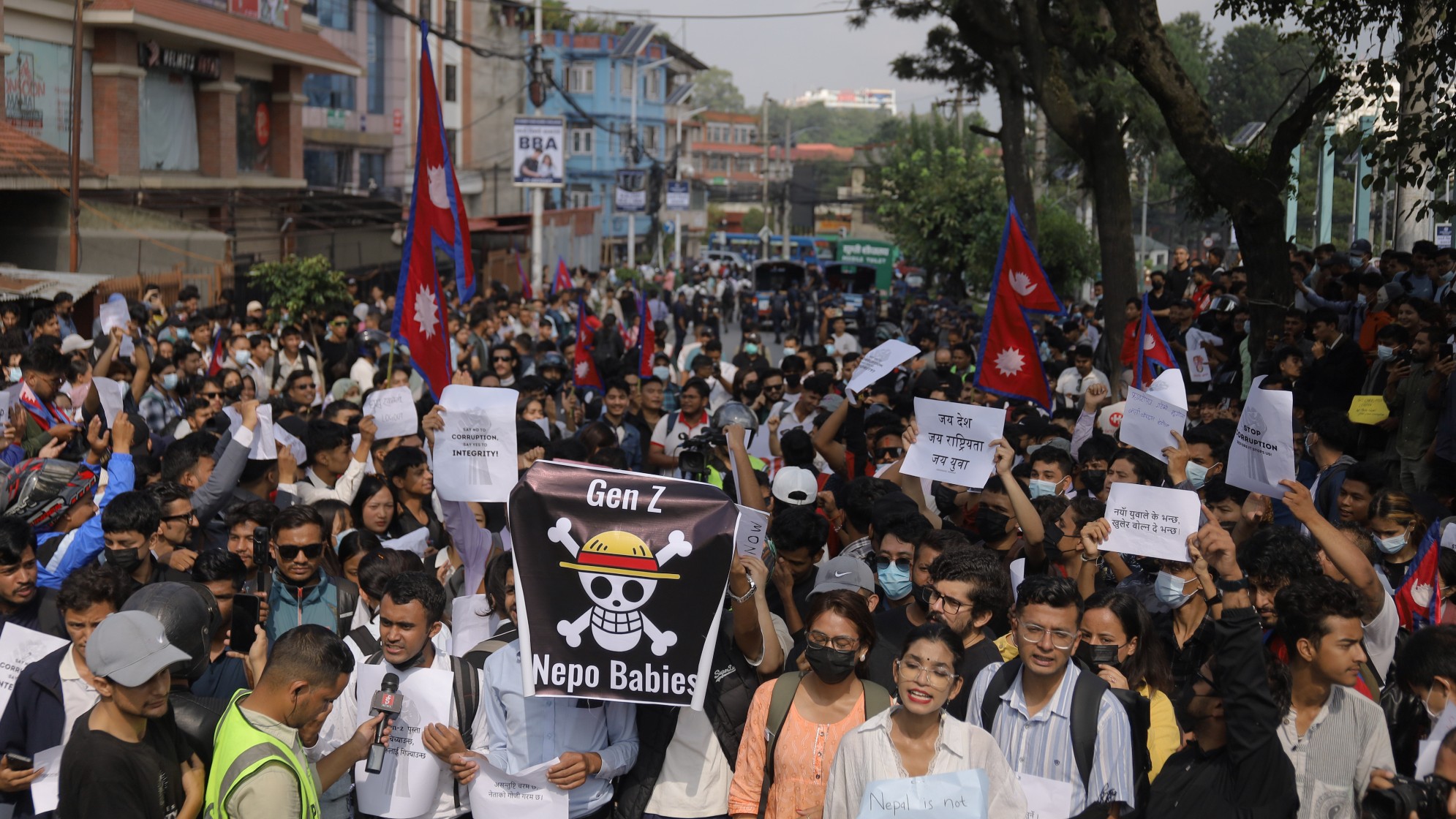John D. Rockefeller
Arguably the original billionaire, Rockefeller built Standard Oil into the world’s most powerful oil empire. He was the first person on public record to be declared the world’s richest man, and his name remains synonymous with wealth and philanthropy.
A common thread: National influence
Interestingly, with the exception of Bernard Arnault and Carlos Slim, all individuals who have held the title of the world’s richest have been Americans. Their wealth has not only shaped industries but influenced politics, public policy, and social development—often blurring the lines between capital and democracy.
Now, with Musk preparing to challenge the traditional two-party system-duopoly, the U.S. may be on the cusp of a new political era—one where the ultra-rich not only fund political movements but lead them too. If it manifests in the US it will be copied in europe and the rest of the world with serious implications as democracy as we know it today-govt.of the people, by the people and for the people as introduced in Athens, Greece by Cleisthenes in 507 BC may not remain the same. Rather , the role of money, not conscience in choosing political leaders will be heavily influenced by the wealthy not the massses which is curreently a common practice in nascent democracies in Africa and elsewhere in the developing world where they are looking up to the advanced democracies for guidance.
Over the past century, different individuals have emerged as the world’s richest at various points in time. Interestingly, their wealth has often been derived from the most impactful or trending industries of their era.
John D. Rockefeller earned his place as the world’s richest man through oil exploration—a sector that, at the time, was the lifeblood of the global economy. Warren Buffett ascended to the top during a period when hedge funds and bond investments dominated the wealth-generation space. Bill Gates, meanwhile, achieved his status during the rise of the Information Technology (IT) revolution. Jeff Bezos capitalised on the explosion of online retail and logistics, while Bernard Arnault built his fortune in the luxury goods market. Today, Elon Musk holds the title, having leveraged the global shift from fossil fuels to electric mobility through Tesla, alongside ventures in space technology, communication (Starlink), and social media (X, formerly Twitter).
Though all these men have accumulated extraordinary wealth, their approaches to giving back—or not—vary widely. Historically, many of the world’s richest individuals channeled their fortunes into philanthropy or public good. For instance, Bill Gates and Warren Buffett have invested billions into disease eradication, education, and global health through the Bill & Melinda Gates Foundation and other initiatives. They have consciously avoided political entanglements, choosing instead to uplift humanity through strategic social investments.
In contrast, Elon Musk has taken a markedly different route. Until recently, he appeared to share similar philanthropic values. However, his pivot into political funding—culminating in a reported $300 million contribution to President Trump’s 2024 campaign—has placed him at the center of political controversy. His involvement has further intensified since his recent declaration of forming a new political platform, the “America Party,” in opposition to Trump.
This deviation from the typical billionaire playbook has made Musk a polarising figure. His political ambitions, particularly his tenure as head of the Department of Government Efficiency (DOGE), have drawn sharp criticism. Once hailed for his technological innovations—ranging from electric vehicles to reusable rockets—Musk now faces a wave of public backlash. Tesla owners have gone as far as burning their vehicles in protest. His brand has taken a hit, and shareholders have grown increasingly wary of his political entanglements.
Ironically, Trump and the Republican Party once championed Musk and Tesla. Now, they find themselves in the crosshairs of Musk’s political ambitions. The paradox is as glaring as it is instructive.
Musk’s fall from grace is not unique. Bill Gates once faced a backlash for predicting the potentially catastrophic impact of COVID-19 on Africa—a projection that proved to be off the mark. He was also accused, without evidence, of supporting eugenics-related research. Yet, Gates has largely maintained his reputation due to his consistent focus on humanitarian causes. The same cannot be said of Musk, whose tenure at DOGE was seen by many as high-handed and out-of-touch.
Even Rockefeller was not without controversy. He was alleged to have played a role in the 1915 Armenian genocide in the Baku region of present-day Azerbaijan—then under Soviet control. Allegations suggest that, to protect their refinery operations in the region, Rockefeller and the Rothschilds enlisted the Turkish army to forcibly remove the local Armenian population-marking it the first genocide before the Nazi holocaust . Though Turkey has denied the genocide, and the United Nations long withheld recognition, President Joe Biden formally acknowledged it as genocide on April 24, 2021—over a century later.
Today’s billionaires, particularly those in technology, seem more inclined to pursue profit than purpose. Unlike the Carnegies, Fords, and Rockefellers of old, many modern billionaires are focused on personal indulgence—space tourism, luxury weddings in Venice, and opulent mansions around the globe. In Nigeria, the pattern is strikingly similar.
Whether their wealth comes from oil, banking, technology, or even law, few Nigerian billionaires are endowing universities, funding scholarships, or building hospitals. While some do engage in philanthropy, (Dangote, Mike Adenuga, Femi Otedola, Toni Elumelu, James lbori, Samad Rabiu etc engage in empowerment or set up educational institutions to support the indigent) the majority appear more interested in lavish lifestyles—hosting extravagant parties in Dubai, buying private jets and fleets of luxury cars, and building palatial homes they rarely inhabit.
In contrast to this trend, some American billionaires have ventured into politics with varying degrees of success. Ross Perot, founder of Texas Instruments, famously disrupted George H.W. Bush’s 1992 reelection bid by capturing nearly 20% of the vote as an independent. Ralph Nader ran as a Green Party candidate multiple times, while Mike Bloomberg—founder of Bloomberg LP and former mayor of New York—entered the 2020 presidential race as a Democrat, self-funding his campaign to the tune of $1 billion.
To out the narrative in context, in Nigeria, the closest parallel to Musk’s political move would be if Alhaji Aliko Dangote challenged President Bola Tinubu. Dangote has demonstrated that he would never do that when at the launch of the link road from his refinery by President Tinubu, he humourously instructed the master of ceremony not to refer to him as president/ CEO of Dangote group since the President Tinubu, his superior was there. He is that humble and apolitical. Chief MKO Abiola, a multi- billionaire tried to become the president of Nigeria by contesting for the top job straight out of the business world during a military dictatorship to democracy in 1993. Unfortunately, he did not only loss his fortune, he also lost his life.
But while Musk can survive political backlash in a country like the U.S., where institutions are strong, such a move in Nigeria could endanger an entire business empire. Even in the US , already, Musk’s own companies are feeling the pressure. Azoria Partners, an investment firm involved in business with him, has reportedly delayed the launch of a Tesla exchange-traded fund (ETF) due to uncertainty surrounding Musk’s political intentions. That is on top of the fact that Tesla shares have been rising and falling sharply since he dabbled into politics.
Azoria’s CEO, James Fishback, has called on Tesla’s board to clarify Musk’s political ambitions, warning that the launch of the America Party could erode shareholder confidence. The stock market, sensitive to leadership uncertainty, is watching closely.
In a previous column a couple of weeks ago, titled “Trump and Musk Feud: A Case for Keeping Politics and Business Separate,” I made the argument that wealthy entrepreneurs should tread carefully when entering the political arena. Government, after all, is the most powerful authority after God. It’s no surprise that Musk may soon have to yield the title of the world’s richest man to Jeff Bezos—again as his vast business empire may further be diminished.
In Nigeria, similar tensions are playing out. The formation of the African Democratic Congress (ADC) by disenchanted former APC stalwarts mirrors the creation of the America Party in the U.S. disgruntled Musk.
In both cases, political egos and personal ambition appear to be driving these initiatives—not necessarily a desire to serve the public good.
It’s hard to imagine that Americans are seeking a messiah in Elon Musk—a man many view with suspicion due to his leadership of DOGE and controversial business practices.
Concluded.
Magnus Onyibe, an entrepreneur, public policy analyst, author, democracy advocate, development strategist, sent this piece from Washington D.C., USA.






